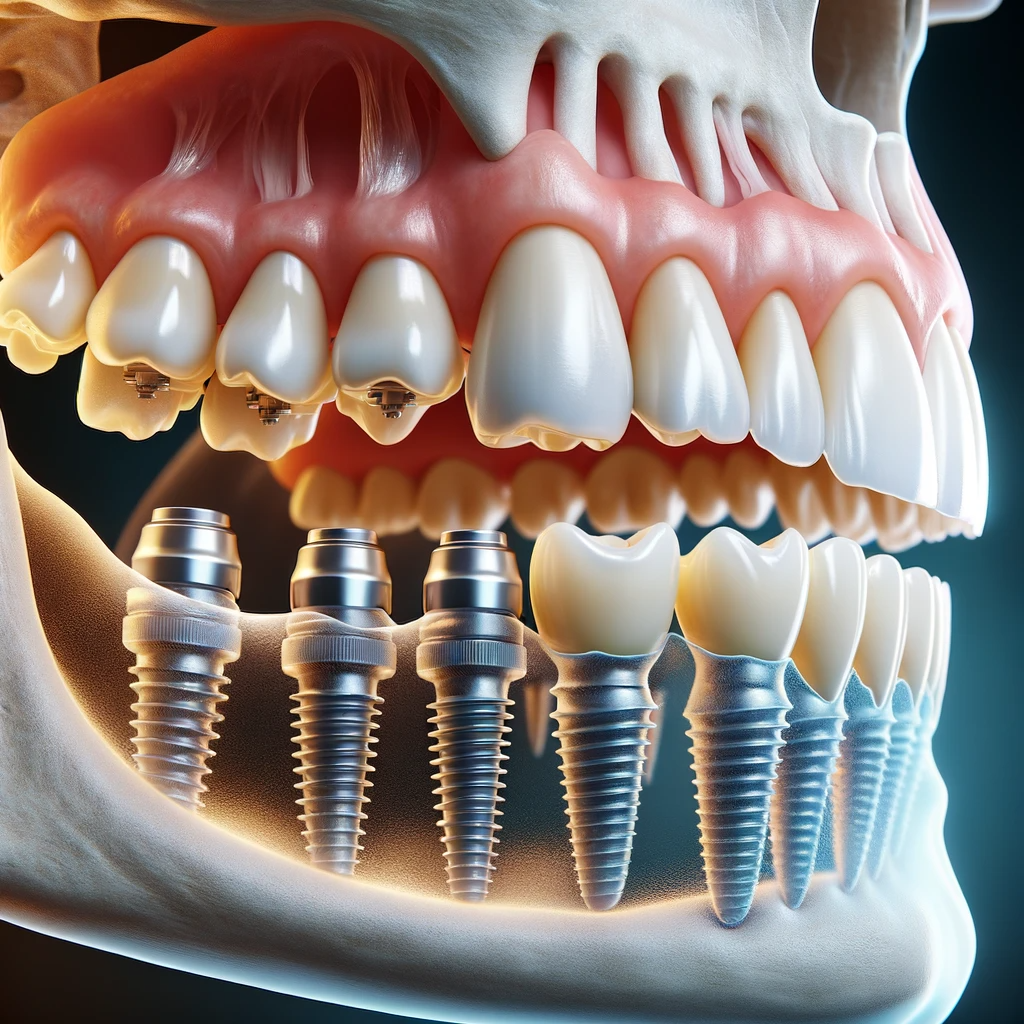The 6-Second Trick For Dental Sense
The 6-Second Trick For Dental Sense
Blog Article
About Dental Sense
Table of ContentsRumored Buzz on Dental Sense7 Easy Facts About Dental Sense ShownMore About Dental SenseThe Buzz on Dental Sense
are clinical devices surgically implanted into the jaw to recover a person's capability to chew or their look. They offer support for artificial (fake) teeth, such as crowns, bridges, or dentures. When a tooth is shed due to injury or illness, a person can experience problems such as quick bone loss, defective speech, or changes to chewing patterns that result in pain.Dental dental implant systems include an oral implant body and dental implant joint and may also include an abutment addiction screw. Dental implant vs bridge. The oral implant body is surgically put in the jawbone instead of the tooth's origin. The dental implant abutment is normally connected to the dental implant body by the joint addiction screw and prolongs via gum tissues into the mouth to sustain the connected artificial teeth
(https://writeablog.net/dentalsense1/expert-solutions-for-wisdom-tooth-cavities-and-same-day-dental-implants)Structure of The Dental Implant System selecting dental implants, talk to your oral service provider about the possible benefits and threats, and whether you are a prospect for the treatment. Points to take into consideration: Your general health is an essential element in figuring out whether you are a great candidate for dental implants, for how long it will certainly take to recover, and for how long the dental implant might remain in place.
Cigarette smoking might affect the recovery process and lower the long-lasting success of the dental implant. The healing process for the implant body might take a number of months or longer, throughout which time you normally have a short-lived joint in place of the tooth. the oral implant procedure: Meticulously adhere to the oral hygiene directions provided to you by your oral copyright.
Dental Sense Things To Know Before You Get This
Implant failing can result in the need for another operation to deal with or replace the implant system. Recovers the capacity to chew Brings back cosmetic appearance Helps maintain the jawbone from diminishing because of bone loss Maintains the health and wellness of the surrounding bone and gums Helps maintain nearby (close-by) teeth secure Enhances top quality of life Damages to bordering natural teeth throughout dental implant positioning Injury to the surrounding cells during surgical treatment, such as sinus perforation Injury during surgical treatment (for instance, crack of surrounding jawbone) Inadequate function, such as feeling like the teeth do not attack together generally An experience that the tooth hangs or turning in position arising from a joint screw loosening Implant body failing (looseness of the dental implant body) because of systemic infection, which may be most likely in individuals with unrestrained diabetes mellitus due to local infection in bone and periodontals supporting the implant body due to postponed recovery, which may be most likely in clients that smoke Problem cleaning the gums around the dental implant, resulting in inadequate oral health Untreated periodontal condition Post-surgical numbness because of nerve impingement or damage Always alert healthcare providers and imaging specialists that you have dental implants prior to any type of magnetic vibration imaging (MRI) or x-ray treatments.
FDA is not familiar with any kind of negative occasions reported for MRI or x-ray procedures with dental implants. Dental implants systems are normally made of products that comply with worldwide consensus criteria of the International Company for Standardization (ISO) or ASTM International. These standards have information of what makes a safe material.

A dental implant is a structure that replaces a missing tooth. With screw-like gadgets, the surgeon inserts an implant into the jawbone, and it works as an anchor for an artificial tooth, called a crown. A tool called an abutment attaches the synthetic tooth to the dental implant. The crown is custom-made to fit the person's mouth and match the color of their teeth.
Unknown Facts About Dental Sense
Some individuals are not eligible for dental implant surgical treatment. It is for dental doctors to operate individuals with: intense illnessuncontrollable metabolic diseasebone or soft tissue illness or infectionIf these problems are dealt with, a person can have the surgical treatment. In, oral doctors avoid running on individuals with: If individuals with any one of the above go through oral implant surgery, there is a higher threat of the implant failing.

Dental implant surgery is a customized process. Provide you time to recover. Attach the blog navigate here post and last crown, bridge or denture.
Next, your specialist will meticulously put the oral implant right into your jaw. Lastly, your surgeon will rearrange your periodontals and shut the laceration with stitches. If your implant is near the front of your mouth, your dental professional will make a temporary tooth for you to wear until you recover. In this way, you will not have a space in your smile while you recover.
The Definitive Guide to Dental Sense
During the healing stage, your jawbone must fuse to the dental implant. This procedure can take anywhere from 3 to nine months.
When your implant heals, your dental professional can connect the joint (tiny adapter article) and your final restoration (crown, bridge or denture). This typically takes about one hour to complete and might require a second minor surgery. You shouldn't really feel any kind of discomfort throughout your dental implant treatment because your supplier will utilize medication to numb your gums.
Report this page